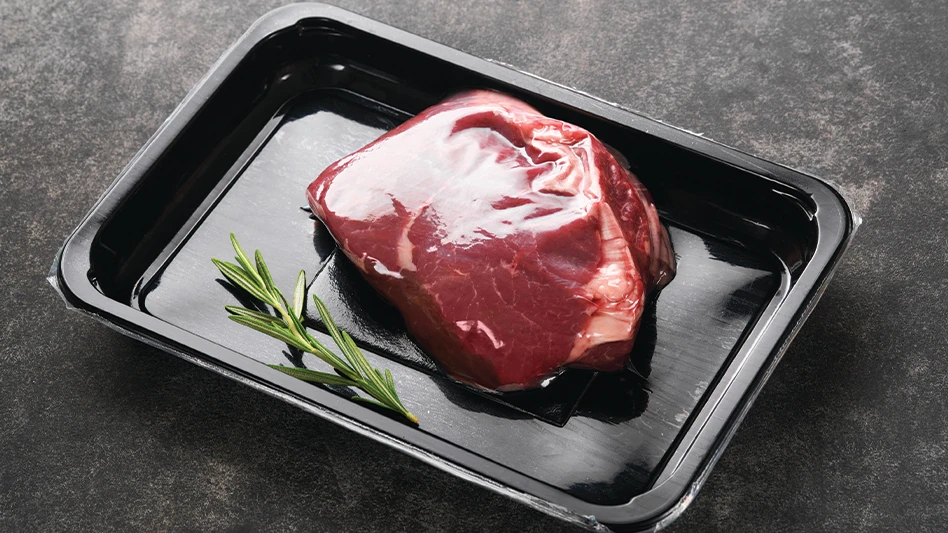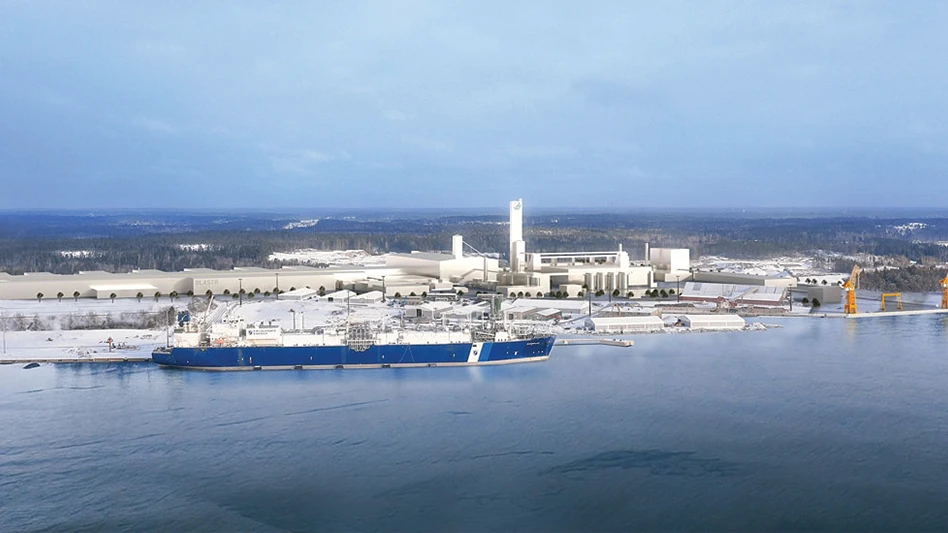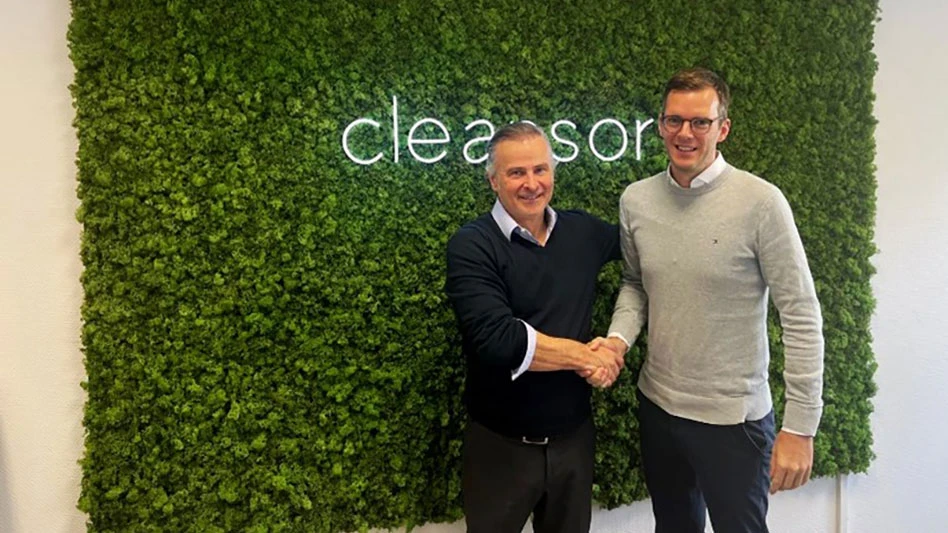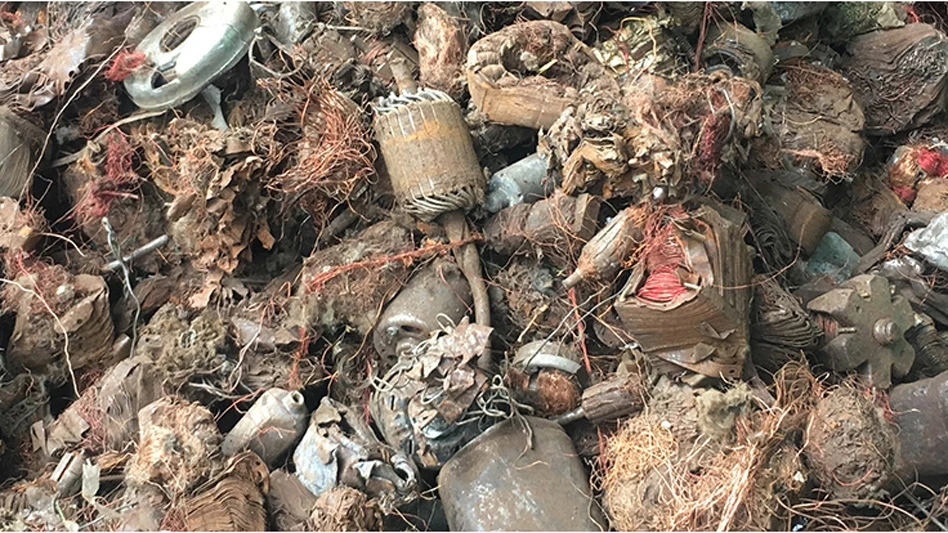_fmt.png)
“It’s difficult to find heavy equipment mechanics, generally,” says John Anderson, director of maintenance for ABC Recycling’s British Columbia operations. “If we don’t have the people we need on our own payroll, we can end up waiting a long time for machine service.”
And waiting is something ABC Recycling, which has eight recycling yards in British Columbia and one yard in Alberta, can’t afford to do.
The company, which is headquartered in Burnaby, British Columbia, has been operating in western Canada since 1912. ABC Recycling purchases ferrous and nonferrous metals, including household, industrial and demolition scrap. The ferrous metals it purchases include cars and trucks, cast iron, plate and structural, rebar and Nos. 1 and 2 heavy melting steel (HMS). Welcome nonferrous materials include various aluminum grades, such as insulated aluminum wire, 6063 extrusions, zorba and twitch, and red metal scrap, including electric motors, insulated copper wire and yellow and red brass. The company also buys stainless steel, ferroalloys, cobalt-based alloys and cupronickels and monels.
In addition to scrap buying and processing, ABC Recycling offers brokerage services and assists customers with derailments.
The company is in its fourth generation of family ownership: David Yochlowitz serves as CEO; his brother, Mike, is vice president of operations; and his cousin, Karen Bichin, is manager of community relations.
DIY attitude
When it comes to ABC Recycling’s fleet of scrap handlers, Anderson says, “Having our own team of factory trained technicians makes a huge difference.”
Anderson’s goal of self-sufficiency in maintenance is one reason ABC has been growing its fleet of material handlers from Sennebogen LLC, Stanley, North Carolina, over the past 10 years.
Logan Strohm of Great West Equipment, the local Sennebogen dealer, is sympathetic to Anderson’s cause. “We have 11 service branches here in [British Columbia], but that still leaves our techs with a lot of territory to cover,” he says. “That’s why we recommend that customers take advantage of the free factory training that Sennebogen offers.”
A service crew in Burnaby supports ABC’s scrap handlers there and in Surrey. The company’s fleet includes 835 M and 830 M models, equipped with grapples and magnets.
“The 835 seems to be the right machine for everything we do, whether feeding stationary shears and balers or loading trucks and rail cars,” Anderson says.
Training techs and operators
Anderson has had ABC Recycling’s maintenance staff as well as the company’s scrap handler operators attend the scrap handler manufacturer’s Training Center in Stanley.
The Training Center, part of the company’s 100,000-square-foot head office complex, provides classroom instruction and hands-on training with a demonstration module and full-size machines in a three-story indoor bay. The Level I course and the Level II advanced program for technicians are five-day programs that are free to dealers and their customers.
_fmt.png)
An added benefit of training at the facility is the ability to see the extent of the manufacturer’s parts inventory, Anderson says. “As well as regular and routine service items, they also have a huge inventory of major components on hand, such as pumps, engines, cylinders, axles and even boom and stick assemblies. You can see the company has invested heavily in parts for North America.”
Additionally, the scrap handlers use commonly available parts wherever possible for power, hydraulics, electrical and other service requirements, advancing Anderson’s goal of self-sufficiency.
“We can get all the parts we need from our dealer, of course, but we can also source parts locally,” Anderson says. “With their Cummins engines, we can find routine parts almost anywhere.”
Overall ease
ABC technicians and operators take an active role in the company’s purchase process for new equipment, Anderson says.
The company’s maintenance team appreciates the simplified access to routine service points on its scrap handlers, he says. The layout of maintenance components has been well-designed, he adds, with most service and diagnostic items accessible from ground level. Hydraulic diagnostic ports also are easy to reach. Electrical fuses and relays are all arranged together in the main panel, which is accessed on one side of the machine from ground level. Auto-lubrication is standard equipment on the scrap handlers, which simplifies maintenance tasks and extends the life of major components.
Anderson listens to his scrap handler operators’ recommendations as well. “They are in the machine eight hours a day. We want to be sure they have a comfortable operating environment along with good functionality.”
He says the cabs on the scrap handlers offer visibility and a two-camera system, while the machines are easy to handle overall. The simplicity and serviceability of the company’s scrap handlers lead to lower life cycle costs for ABC.
“With our own crews and easy parts supply, the Sennebogen equipment needs little downtime for service and repairs, so that brings down our total operating cost,” Anderson says.

Explore the June 2019 Issue
Check out more from this issue and find your next story to read.
Latest from Recycling Today
- Call2Recycle strengthens partnership with Brockville, Ontario
- Symphony Environmental launches biodegradable resin for plastics industry
- Updated: Saica exploring recycled paper mill project in Dayton, Ohio, report says
- Reju, NFT working together on textile circularity in France
- Iondrive raises $6M for battery recycling pilot plant, commercialization efforts
- Steel output in US remains off 2023 pace
- Tata Motors opens auto dismantling facility in India
- Rio Tinto incorporates recycled aluminum in Australia





